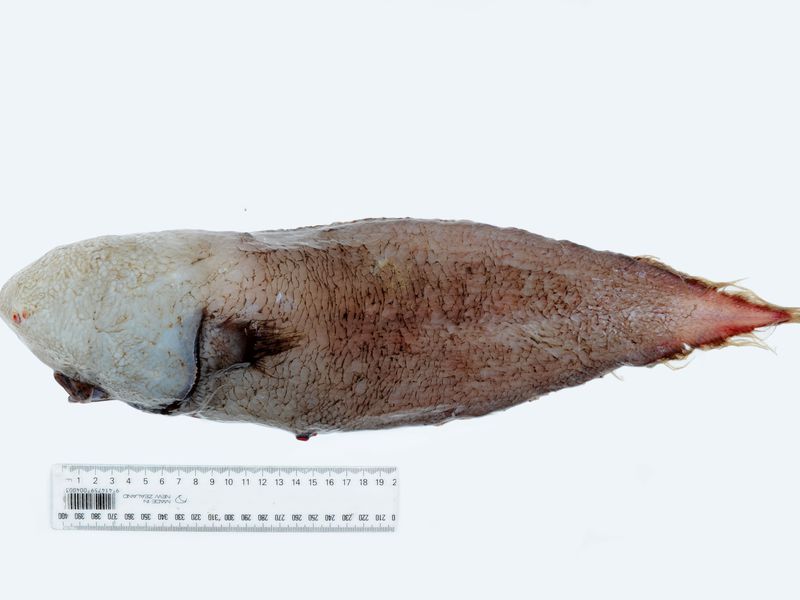Faceless Fish Caught In Australia For The First Time In 140 Years

John Pogonoski, CSIRO Australian National Fish CollectionThis new faceless fish is chubbier and healthier than the one found more than a century ago, experts say.
Deep down in the waters off the coast of Australia, the water is a chilly 34 degrees and no light cuts through the highly pressurized surroundings.
It’s a world that we know relatively little about — a world where, apparently, faces aren’t really necessary.
A crew of scientists caught a fairly ugly blob of a creature this month, and they were thrilled.
They had never heard of anything like it — no visible eyes, mouth, or gills — and thought they may have discovered a new species.
Read on here.
“Sixth Mass Extinction” Underway Due To Human Activity, New Study Finds

Keith Getter / Getty Images
“Imagine being a scuba diver and leaving your air tank behind you on a dive,” a new study suggests.
Or maybe a skydiver without a parachute, a mountain climber without a rope — the list of metaphors goes on.
Either way, you’re screwed. As is, according to the research from the University of Minnesota and McGill University, our planet.
“Human activities are driving the sixth mass extinction in the history of life on Earth, despite the fact that diversity of life enhances many benefits people reap from nature, such as wood from forests, livestock forage from grasslands, and fish from oceans and streams,” Forest Isbell, the paper’s lead author, said. “It would be wise to invest much more in conserving biodiversity.”
A quarter of mammals and over one-tenth of birds are currently threatened with extinction.
Keep reading here.





